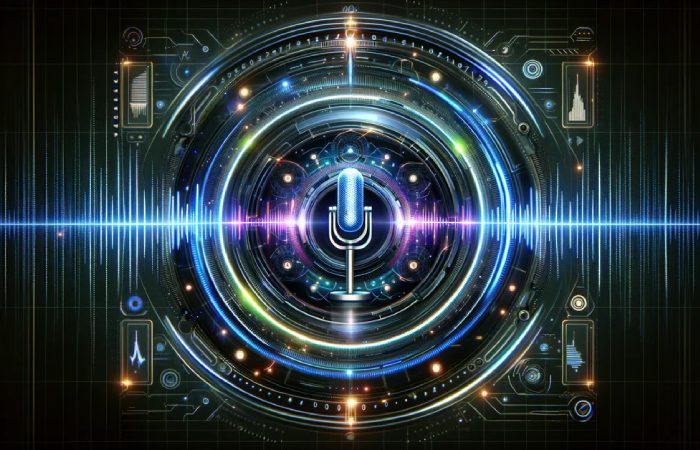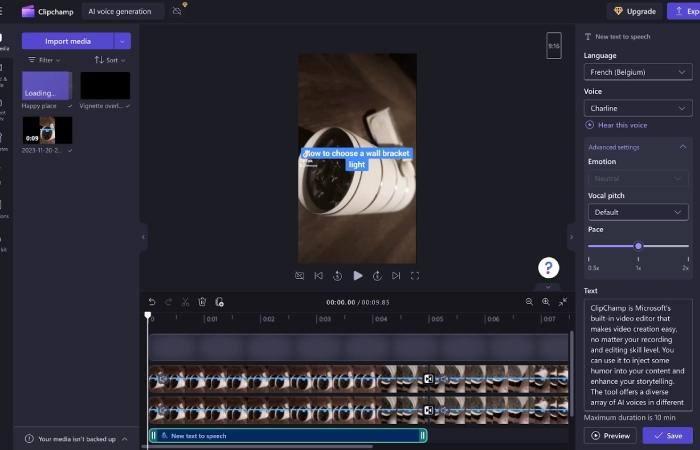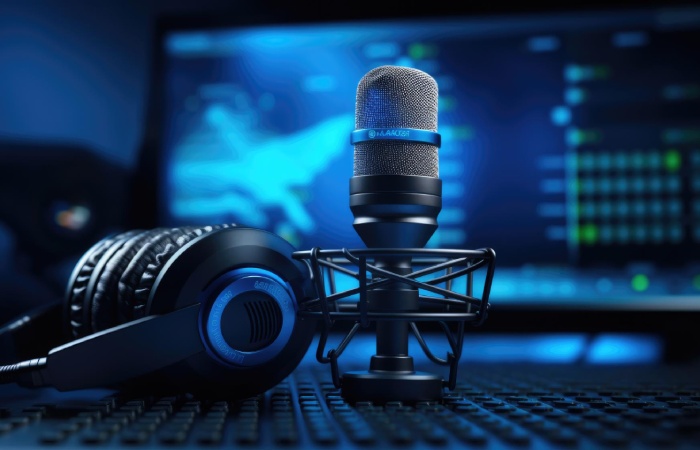Artificial intelligence (AI) has infused almost every industry, driving significant change and innovation. One of the most transformative applications of AI is in voiceover generation. AI voiceover generators are not only changing the way voiceovers are produced, but they are also revolutionizing the entire media industry. From cost savings to unprecedented efficiency, the impact of this technology is profound and far-reaching.
The Evolution of AI Voicever Generators

AI voiceover generators have come a long way since their inception. Initially, these systems were basic text-to-speech programs capable of producing robotic, monotonous speech. However, thanks to advances in machine learning, deep learning, and natural language processing, an AI voiceover generator has become a sophisticated tool capable of producing human speech with remarkable accuracy and nuance.
Advantages of AI VoiceOver Generators:
Cost Efficiency
One of the most important advantages of AI speech generators is cost-effectiveness. Traditionally, hiring professional voice actors can be expensive, especially for projects that require multiple voices or languages. AI voiceover generators can produce high-quality voiceovers at a fraction of the cost, making them an attractive option for media producers on tight budgets.
Time Savings
In addition to being cost-effective, AI voiceover generators are incredibly fast. Manual voiceover production can be a tedious process that involves multiple recording sessions, edits, and re-recordings. AI voiceover generators can produce voiceovers almost instantly, significantly reducing production times and enabling faster project execution.
Consistency and Reliability
Another advantage of AI voiceover generators is their consistency and reliability. Human voice actors may have days off, suffer from illnesses, or experience fluctuations in their vocal performance. AI, on the other hand, can consistently produce the same quality of voiceover, ensuring a consistent final product. This reliability is particularly beneficial for long-term projects that require consistent voice quality over time.
Applications in Various Media Sectors:
Film and Television
In the film and television industry, AI voiceover generators are used for voiceover and dubbing. They can provide voices for animated characters, allowing for consistency between episodes or sequels. Additionally, AI can facilitate the dubbing of foreign films, making them more accessible to global audiences.
Advertising
The advertising industry has also adopted AI voiceover generators. These systems can create voiceovers for advertisements and promotional videos quickly and inexpensively. This allows advertisers to produce high-quality content quickly, adapting to a rapidly changing industry.
Gaming
The gaming industry benefits greatly from AI voiceover generators. These systems can provide character voices, narration, and in-game instructions, enhancing the gaming experience with realistic and engaging audio. AI voiceovers can be customized to meet the unique needs of each game, creating a more immersive experience for players.
Education
In the education sector, AI voiceover generators are used for e-learning modules and instructional videos. They provide clear and coherent storytelling, making educational content more accessible and engaging for learners. AI voiceovers can also be used to create audiobooks, making literature and educational materials available to a wider audience.
Podcasts and Audiobooks
Podcasts and audiobooks are another area where AI voiceover generators excel. They can narrate books, voice characters, and even generate entire podcast episodes. This opens up new promises for content creators, allowing them to produce high-quality audio content quickly and efficiently.
Impact on Human Voice Actors: (AI Voiceover)

Job Displacement Concerns
The rise of AI voiceover generators has raised concerns about the dismissal of human voice actors. As AI becomes more widespread, there are concerns that it could replace human talent, leading to job losses. This concern is not unfounded, as AI can produce voiceovers faster and cheaper than humans.
New Opportunities and Roles
However, AI also creates new opportunities for voice actors. Voice actors can collaborate with AI to improve their work, using AI to generate preliminary voiceovers that they can then refine. Additionally, new roles are emerging in the management and optimization of AI-generated content. Voice actors with technical skills can find new career opportunities in this evolving landscape.
Technological Advancements Driving AI Voiceover Generators:
Natural Language Processing (NLP)
Natural language processing (NLP) is a key technology behind AI voiceover generators. NLP enables AI systems to understand and generate human language, allowing them to produce natural-sounding voiceovers capable of conveying emotions and nuances. Advances in NLP have significantly improved the quality of AI-generated speeches, making them more realistic and engaging.
Machine Learning (ML)
Machine learning (ML) algorithms are essential for the development of generators. These algorithms allow AI systems to learn from large amounts of data, improving their accuracy and performance over time. ML allows AI to adapt to different voices, accents, and tongues, making it a versatile tool for various multimedia applications.
Deep Learning (DL)
Deep learning (DL) involves neural networks that mimic the structure and function of the human brain. This technology is at the heart of the most advanced generators, allowing them to create highly sophisticated and realistic voiceovers. Deep learning models can analyze and reproduce the subtleties of human speech, including pitch, pitch, and rhythm, resulting in more natural voiceovers.
AI voice gen and video creators

With AI-powered speech generation, creators can automate the process of adding narration, dialogue, or commentary to videos, audiobooks, podcasts, and other multimedia projects with high-quality voiceovers. Save time, money, and capital while maintaining high-quality productions.
AI-powered voice generation can also automate voiceovers or subtitles in multiple languages, allowing creators to reach a broad audience without hiring multilingual voice actors or translators. This is good news for content creators with multilingual audiences and a small budget.
Another significant benefit is that AI speech generation technology makes content more accessible to visually impaired people, providing an alternative means of accessing information, entertainment, and educational content.
Brands and companies using virtual assistants and customer support can quickly improve their user experience with speech generation. Customers will feel more comfortable interacting with human-speaking chatbots because the conversation will flow naturally.
In the entertainment industry, voice actors are bracing themselves for serious competition. Thanks to technological advances, more creators use AI to dub, voiceover, and provide character voices. In animated films and video games, AI-generated voices can bring characters to life with emotional performance, adding depth and realism to the storytelling at a fraction of the cost of hiring an actor.
Ethical Considerations: (AI Voiceover)
Authenticity and Deception
One of the main moral concerns surrounding generators is the potential for deception. AI-generated voices can be incredibly realistic, making it difficult for listeners to distinguish between human and AI voices. Ensuring the transparency and authenticity of media content is crucial to maintaining public trust.
Intellectual Property Rights (AI Voiceover)
Another ethical issue is that of intellectual property rights. Determining who owns the rights to AI-generated voices (whether AI developers, users, or another party) can be complex and controversial. Clear guidelines and regulations are wanted to address these issues and defend the rights of all parties involved.
Future Trends in AI Voiceover Technology:

Enhanced Realism (AI Voiceover)
Future advancements in technology will likely focus on improving realism. This includes improving the emotional range and subtlety of AI-generated voices, making them even more indistinguishable from human voices. As AI continues to learn and change, the quality of voiceovers will only improve.
Personalized Voices (AI Voiceover)
Generators will soon be able to create custom voices tailored to individual preferences. This customization could be used in a variety of applications, from personal assistants to personalized audiobooks. Custom voices can improve the user experience and make multimedia content more engaging and accessible.
Integration with Other AI Technologies
Generators will increasingly be integrated with other AI technologies, such as makeover recognition and emotion detection. This integration will enable even more sophisticated and interactive multimedia experiences. For example, AI could generate voiceovers that match characters’ facial expressions and emotions in real-time, creating more immersive and dynamic knowledge for viewers.
Conclusion
AI voiceover generators are revolutionizing the media industry by providing consistent, cost-effective, and time-saving voiceover solutions. Although there are challenges and ethical considerations, the benefits and potential of this technology are undeniable. As AI continues to advance, it will certainly play a progressively significant role in the creation and delivery of multimedia content.

